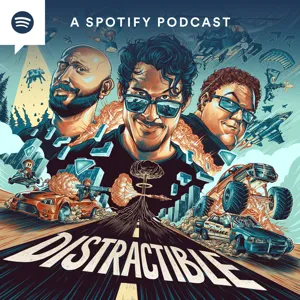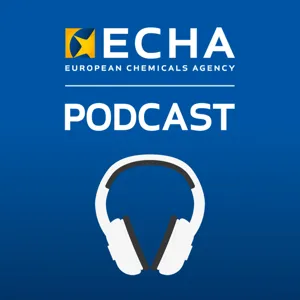Podcast Summary
Affordable alternatives for phone plans and car parts: Save money with Mint Mobile's $15/month unlimited plans and eBay Motors' 22M part selection for car repairs
There are affordable alternatives to expensive phone plans and car part purchases. Mint Mobile offers wireless plans with unlimited talk, text, and data for just $15 a month. Meanwhile, eBay Motors provides access to over 22 million parts for car repairs, ensuring a perfect fit the first time. These options can help individuals save money and avoid unnecessary expenses. Additionally, the conversation touched on the topic of mishaps and injuries, reminding us that sometimes accidents happen, and it's essential to learn from them and move forward.
Differences in Perspectives on Resources and Health Risks: Despite varying perspectives on resources and awareness of health risks from microplastics, all agree on potential unknown dangers.
The speakers in this discussion have vastly different perspectives on their lives and resources. While some express concerns about their limited storage capacity, others boast about their excessive amounts. The conversation then shifts to the topic of microplastics and their potential health risks, with some expressing concern and others appearing unaware. Despite their differences, they all seem to agree that there are unknown health risks associated with microplastics and the extent of human consumption. However, the discussion is also marked by a sense of uncertainty and exaggeration, making it difficult to determine the accuracy of some claims. Overall, the conversation highlights the importance of being informed about potential health risks and the importance of having a clear understanding of one's own resources and limitations.
Microplastics: A Persistent Presence in Our Environment: Despite uncertainty about human health effects, microplastics are harmful and should be prevented from entering our bodies by using filters and being cautious with water and food consumption.
Microplastics are a pervasive presence in our environment and have been for decades. While the exact impact on human health is still uncertain, there is evidence suggesting that the chemicals that break down from microplastics can lead to harmful effects, including cancers and inflammation. The best course of action currently is to prevent microplastics from entering our bodies by using filters and being cautious with our consumption of water and food. However, the debate is ongoing, and more research is needed to fully understand the risks and potential benefits of microplastics.
Newer concerns about plastics and microplastics: Recent studies suggest the human body may filter out plastics effectively, but unhealthy livers may struggle, leading to potential health issues. More research is needed on the impact on fertility and immune system. Maintain a healthy lifestyle to process plastics and minimize exposure.
While there have been concerns about various substances throughout history, many of which have turned out to be relatively harmless, plastic and microplastics are a newer concern. However, recent studies suggest that the human body may be able to filter out plastics effectively, with liver health being a potential factor. It's important to note that unhealthy livers may not be able to process plastics correctly, leading to potential health issues. While there are concerns about the impact of plastics on fertility and the immune system, more research is needed to confirm these claims. Overall, it's crucial to maintain a healthy lifestyle to ensure the body can effectively process any potential toxins, including plastics. Additionally, reducing exposure to plastics and microplastics can help minimize potential risks.
EBay Motors: A Reliable Solution for Car Parts vs. Microplastics: A Scientific Mystery: EBay Motors offers a vast selection of reliable car parts with a perfect fit guarantee, while microplastics present a complex scientific mystery with potential risks and unknown benefits
EBay Motors offers a vast selection of over 122 million parts for various car needs, ensuring a perfect fit with their eBay Guaranteed Fit and competitive prices. Meanwhile, in a different context, microplastics, though problematic due to their potential harmful effects when they break down and interact with living organisms, also present an element of uncertainty. They can potentially replicate certain hormones or proteins in the body, leading to unknown effects. This is a result of random happenchance or happenstance, a term used to describe the occurrence of events by chance rather than by design or intention. In the case of microplastics, their impact on the environment and living organisms is still being studied and understood. So, while we should be aware of the potential risks, there's also a chance that microplastics could lead to beneficial discoveries or outcomes. In summary, eBay Motors provides a reliable solution for car parts, while the world of microplastics presents an intriguing and complex scientific mystery.
Microplastics and Health Issues: Microplastics may contribute to health issues like baldness and hormonal changes, but the exact sources and impacts are complex and not fully understood.
The discussion touched upon the potential link between microplastics and health issues such as baldness and hormonal changes. The speaker expressed concerns about the impact of microplastics on their own appearance and potential health risks, while also acknowledging the role of other factors like genetics and environmental pollutants. A specific example was given of how hormones affect breast size in cows and humans, which could be linked to microplastics or other chemicals in the food supply. The conversation also highlighted the complexity of identifying the exact sources and impacts of these substances on human health.
Debating the ethics of studying microplastics and nanoplastics: The reliability of data sets on microplastics and nanoplastics' harm to health and environment is debated, with some advocating for controlled human experiments and others raising ethical concerns.
While there is a consensus that microplastics and nanoplastics may be harmful to the environment and human health, the reliability of data sets used to prove this is a complex issue. Some argue for controlled human experiments, like isolating volunteers and monitoring their health closely, while others caution against ethical concerns and the potential for skewed results due to external factors. Ultimately, none of the participants in the discussion are scientists, and the debate centers more on philosophical and ethical considerations than concrete evidence. The conversation also touched on the potential use of prison populations for experiments and the ethical implications of that. It's important to remember that while there may be a general agreement that microplastics and nanoplastics are potentially harmful, the scientific evidence to support this is not yet conclusive.
Microplastics: Risks and Benefits: Research suggests potential risks like infertility and harm to babies, but also possible benefits, while more studies are needed to understand implications on human health. Minimize exposure by avoiding single-use plastics and ingestion/inhalation.
The debate surrounding microplastics and their potential effects on health is ongoing, with evidence pointing towards both potential risks and benefits. Some studies suggest that microplastics may lead to negative health effects, such as male infertility and potential harm to developing babies. However, other research suggests that microplastics may even have positive effects, such as granting superpowers (as opposed to reality, this is purely fictional). The exact amount of microplastics humans consume daily is still unclear, but it's believed to be significant through inhalation and ingestion. Ultimately, more research is needed to fully understand the implications of microplastics on human health. In the meantime, it's essential to minimize exposure as much as possible through avoiding single-use plastics and avoiding ingesting or inhaling microplastics when possible.
Microplastics: Potential Harm or Convenience?: The debate over microplastics centers on potential health risks versus convenience, with no definitive proof of harm yet.
There's an ongoing debate about the potential harm of microplastics, with some arguing that they could negatively impact human health through various means, such as decreased sperm quality and increased cell apoptosis. Others, however, dismiss these concerns due to a lack of definitive proof and point to the convenience and advancements brought about by plastics. The debate mirrors similar discussions about other potentially harmful substances, where the absence of definitive proof doesn't deter some from using them, while others remain cautious. Ultimately, the jury is still out on the long-term effects of microplastics, and it's up to individuals to weigh the potential risks against the benefits.
Debate about Microplastics Safety: While no definitive evidence of microplastics' safety or harm exists, ongoing research should be considered for accurate understanding.
While the debate between Bob and Wade about the safety of microplastics resulted in a declared victory for Bob, the significance of this "win" is questionable. The conversation revealed that there is ongoing research about the potential health effects of microplastics, but no definitive evidence of their safety or harm. The debate was more of a spectacle than a serious scientific discussion. It's essential to consider credible scientific sources when evaluating the potential risks of microplastics, rather than relying on the outcome of debates for definitive answers.
The Importance of Truth and Reliable Information: In the age of social media, it's crucial to believe in truth and present information honestly, even if it goes against personal or financial interests. Misinformation can lead to potential harm, such as the spread of harmful substances like microplastics.
The importance of facts and reliable information in the age of social media cannot be overstated. The discussion touched upon the topic of microplastics and how easily misinformation can spread online, leading to potential harm. The speakers, despite their playful and sometimes contradictory tone, emphasized the importance of believing in the truth and presenting information honestly, even if it goes against personal or financial interests. They also acknowledged the potential consequences of misinformation, such as the spread of harmful substances like microplastics. Overall, the conversation served as a reminder to be critical consumers of information and to seek out reliable sources to ensure accurate understanding of complex issues.




